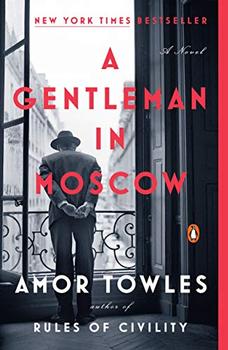Summary | Excerpt | Reading Guide | Reviews | Beyond the book | Read-Alikes | Genres & Themes | Author Bio

Confession: I do two terrible – some say unforgivable – things while reading a book. First, I grunt or laugh or moan when things strike me. Second, with pen in hand, I underline, circle or comment on passages, sentences, and words that I find remarkable.
While reading Julian Barnes' The Noise of Time about Russian composer Dmitri Shostakovich (1906-1975), I laughed, grunted, snickered and moaned nonstop. And there are underlines, circles and comments on almost every page of this remarkable book. The only thing I didn't do was applaud, because I would have had to put down the book. The last thing I wanted.
I've read other critics refer to this story as a fictionalized biography, and in at least one instance there was disappointment because the critic felt it failed at that. Of course it did. This is not a biography, fictional or otherwise, at all. To me, it felt more like a fictionalized third person memoir. As if Shostakovich – the tormented musical genius – had a gremlin in his head making notes and recording the random thoughts. The sparse selections of topic, the chopped paragraphs, the musings and even the repetitions, all have the ring of a personal journal or memoir of a person reflecting on life, art, politics and philosophy. And, as a memoir, this slender volume is a resounding success.
The preface tells the story about a beggar and his encounter with two men at a train station who share a vodka with him. The beggar, a double amputee from a war injury, is described as beyond the point of caring what great cause inspired that, or any other, war. "He had become a technique for survival. Below a certain point, that was what all men became: techniques for survival." It is the leitmotif of Shostakovich's life.
The Noise of Time begins with the harrowing nights after his opera Lady Macbeth of Mtsensk is panned in Pravda by (possibly) Josef Stalin himself. There is a lack of certainty in the identity of the music critic because, "there were enough grammatical errors to suggest the pen of one whose mistakes could never be corrected." This is frightening for the composer because in Stalin's Russia such a criticism from the tyrant himself could serve as a death sentence. As a result, Shostakovich fully expects The Great Leader's minions to yank him from his very bed and drag him off to exile or worse. And so, worried about the effect such a trauma would have on his wife and child, he waits with a packed bag next to the elevator in the hallway of his apartment building to meet his fate head on. He does this night after night, weeks on end, until he finally gives up and returns to his matrimonial bed, but sleeps fully clothed on top of the covers.
Imagine such terror over a work of art. This for a man who believed that, "art is the whisper of history, heard above the noise of time." A man who wrote irony into his music and who knew, even then, that the irony would be lost on subsequent generations of audiences, but who hoped the music might stand on its own merits. Shostakovich continually wrestled with his internal dissonance and anguish over just how much art the State – or "Power" as he referred to Stalin – should own. He noted that even Jesus never specified how much Caesar was due.
Far from feeling cheated out of more biographical information or details of the man's creative process, I felt very much in touch with Shostakovich's heart and his struggle to maintain some semblance of the standard of integrity he'd set for himself. Barnes lets us hover over the composer's life, peep into his thoughts, and envision what life under tyranny is like for the creative mind of the genius. From youth to old age when, "his mind no longer skittered," but, "limped carefully from one anxiety to the next," Shostakovich became more alive than an account of the sum of his experiences.
![]() This review was originally published in The BookBrowse Review in June 2016, and has been updated for the
July 2017 edition.
Click here to go to this issue.
This review was originally published in The BookBrowse Review in June 2016, and has been updated for the
July 2017 edition.
Click here to go to this issue.

If you liked The Noise of Time, try these:

by Amor Towles
Published 2019
From the New York Times bestselling author of Rules of Civility - a transporting novel about a man who is ordered to spend the rest of his life inside a luxury hotel.

by Sofi Oksanen
Published 2016
From the acclaimed author of Purge ("a stirring and humane work of art" —The New Republic) comes a riveting, chillingly relevant new novel of occupation, resistance, and collaboration in Eastern Europe.
Your guide toexceptional books
BookBrowse seeks out and recommends the best in contemporary fiction and nonfiction—books that not only engage and entertain but also deepen our understanding of ourselves and the world around us.